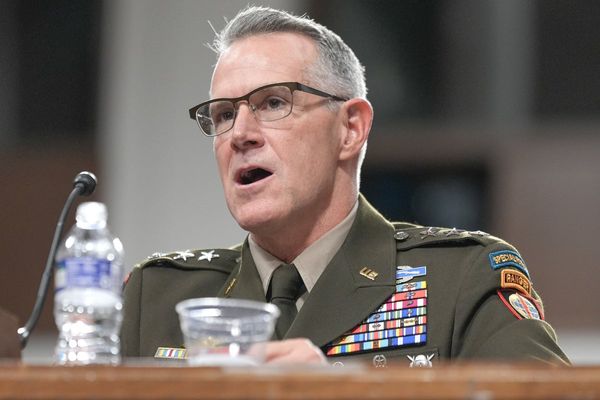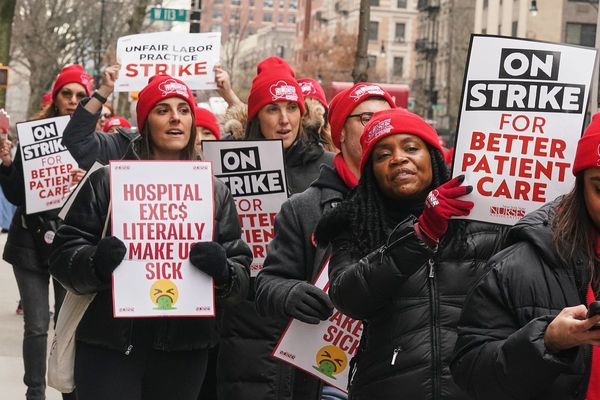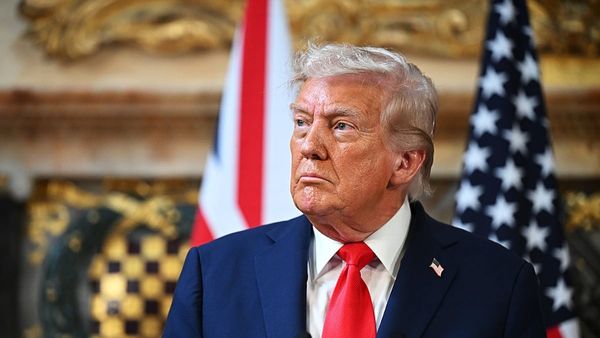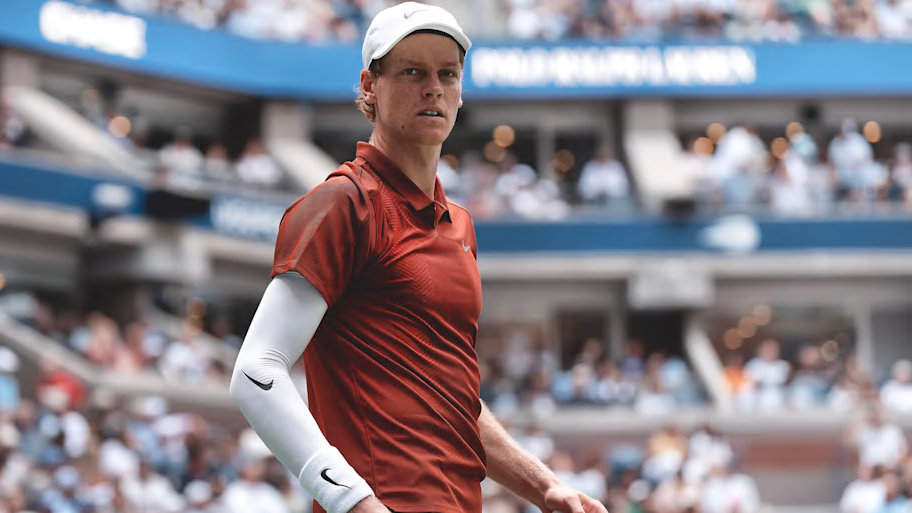
Hey everyone …
• Here’s the latest Served podcast:
• Here’s Dana White on 60 Minutes:
• This week’s Unsolicited book recommendation: Only God Can Judge Me: The Many Lives of Tupac Shakur by Jeff Pearlman.
Onward …
We received a few notes and texts about the news of top players writing to the four majors, seeking more money and input.
• Let’s start with this premise: Tennis players need collective representation. The current system and structure simply do not work for them. They are paid less than most other professional athletes, as a percentage of gross revenue. The four biggest events don’t pay a cent into their pensions. The work conditions—i.e., the calendar, mandatory commitments, and physical and mental demands of the tour—are brutal. So many decisions get made that have a material impact on players’ livelihood—Sunday start and larded 12-day overlapping Masters Series events—and they have virtually no input. Management is trouncing labor. Let’s call it 6–2, 6-1.
Let’s begin with the position that any group seeking to boost the players’ interests and finances is a force of good.
But, as I wrote a few weeks ago, the PTPA simply confounds. Here is a players’ association with, it seems, bottomless funding. It has filed a sweeping federal lawsuit alleging conspiracy, collusion and cartel-like conduct. If successful, it could radically alter pro tennis as we know it. Even if unsuccessful, it will cost the tours—which are half player-owned—tens of millions in legal fees. Yet, no player of note publicly supports this group. Splashy as the lawsuit is, the named plaintiffs in the lawsuit contain zero top-50 players. No notable active players ever mention the PTPA—much less this federal lawsuit—unless asked. They don’t post about this lawsuit on social media. The one star who co-founded the group, Novak Djokovic, has turned his back and sprinted away, as if chasing down a topspin lob. The one star who has pledged support, Nick Kyrgios, hasn’t played in months and is deeply problematic.
The unseriousness of the PTPA and its void-for-vagueness lawsuit doesn’t negate the fundamental issue here: The players deserve more—more money, more benefits, and more voice.
So, here come star players with a different approach. Guided in part by Larry Scott—former ATP executive, WTA CEO and, more recently, Pac-12 commissioner—a group of top players met with officials separately before Roland Garros and Wimbledon. They are not filing existential lawsuits—not yet anyway. But through discourse and negotiation, they are asking that the current revenue split increase from the mid-teens to the low 20s and that the four (wildly profitable) majors make contributions to benefits programs.
I’m told that while discussions have been cordial, the majors are now stalling, a time-honored tactic. (Players’ careers are finite, but Wimbledon can live on in perpetuity.) The question now: How aggressive will the top players get if they don’t see some movement?
There was a lot of the chatter this week was about Lorenzo Musetti, who was the latest player to make regrettable comments while playing an event in China.
• It is lamentable and unfortunate that so many players have made similar remarks in recent years. It’s awfully hard to defend anyone referencing “these f------ Chinese.” Full stop: Racism is bad. Should Musetti be condemned? Yes, and he was. Should he have apologized? Yes, and he did. But, should this be an ineradicable stain? Should this disqualify fans from supporting him? Should he be cancelled? I would say: hard no.
However, there are some nuances and other points to consider here.
1) There is the element of punching up vs. punching down. We’ve talked about this before. One of you wondered whether a Chinese player blasting Italian fans at the Rome event would cause anything close to the same level of controversy. It likely would not. And there are reasons for that. (We also should distinguish between race and nationality.)
2) I was reading Bounces, Ben Rothenberg’s Substack—which I recommend—and learned that Chinese tennis fans have nicknamed Jessica Pegula “Big Rich,” and Emma Navarro “Little Rich,” referencing their families’ amassed wealth. This is a topic that both players strenuously avoid discussing. This is not a flattering shorthand. If an ESPN broadcaster were to use these nicknames, they would be roundly and angrily criticized. But most of us bake in some cultural sensitivity and an acknowledgement that different countries and cultures have different standards. Again, racism is bad. But grace and proportion are good.
3) Social media plays a huge role here. When the intemperate remarks of Musetti (and Taylor Townsend the previous week) entered the maw of Weibo, one of China’s largest social media platforms, and then went viral, the controversy accelerated.
4) Players would do well to express their on-court frustration in ways that don’t insult nationalities. Players would do well to consider it their good fortune to travel the world and not mock customs, mores and tastes that are different from theirs.
5) As fans and observers, we would do well to consider the overall bodies of work and conduct, and avoid rushing to shame and cancel because of one regrettable moment.
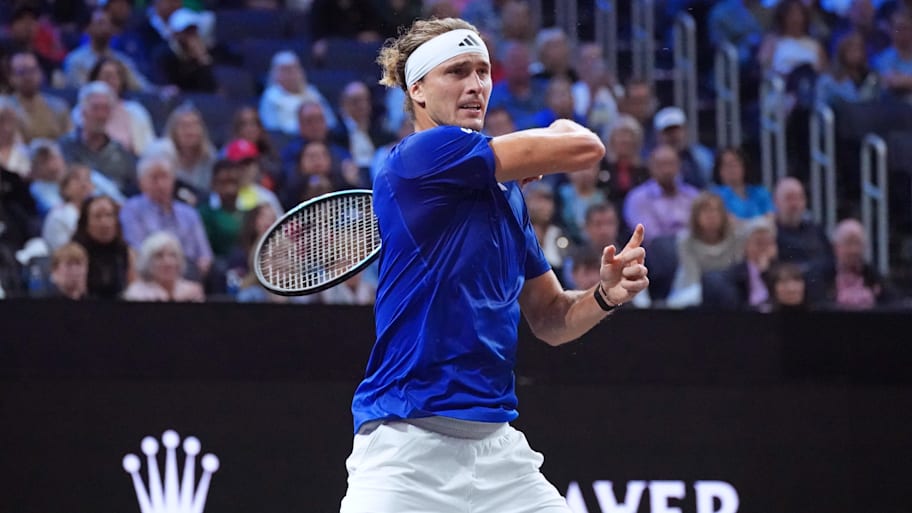
Jon, I heard you and Andy [Roddick] saying that [Alexander] Zverev might be the Best Player Never to have Won a Major EVER. I can’t disagree with that. But when do we stop thinking he has a chance? If a player’s prime has passed, isn’t it time to [bestow] this on someone else?
J.Z. NYC
• If we are being honest—and, really, when are we not?—Zverev probably gets less love (and more schadenfreude) than any other player. Some of you have legitimate reasons for withholding affection. Others seem to be doing the tennis equivalent of hate-watching.
From the two-things-can-be-true-at-once department: He’s had an elite career. He’s the third-best player on the planet. He’s made the final at three different majors. He won titles and millions and most players would chop off a pinky for a fraction of his success. He’s still only 28. I would suggest that he remains the BPNTHWAM.
And yet, that does not foreclose criticism. When you have the talent to win majors and don’t do so, that warrants discussion. For all his successes, it’s hard to argue Zverev has maxed out his achievements.
One of you mentioned Zverev’s unsuccessful Laver Cup campaign. I would not read too much into that. Since the summer, he’s been hampered by a bad back. (I’m told that he has taken painkillers that have reacted badly with his diabetes medication.) But let’s say this: 2026 is a critical year for him.
Jon, I cannot accept that Taylor Fritz will take confidence from beating Carlos Alcaraz as you seemed to suggest on Tennis Channel. It is an exhibition, whether you accept that or not. Let’s see him do it in a major! Then I’ll be a believer!
Anon
• Do note that Alcaraz beat Fritz this week in Tokyo, barely a week after the Laver Cup rout.
I think we all agree that the annual discussion about the Laver Cup’s status—is it or is it not an exhibition?—has grown tiresome. However, I do think the discourse has given rise to many interesting points that really strip the question down to the studs: What is it we want out of sports?
The short answer: emotional buy-in and some spiritual investment from the athletes. If it doesn’t matter to them, it likely won’t matter to the fans. (Conversely, if they are bought in, we should be, too.)
I had a back-and-forth with a reader who pointed out that the absence of ranking points doesn’t automatically make an event an exhibition. The Olympics, Davis Cup and Billie Jean King Cup don’t offer points, yet no one thinks those are exhibitions or artificial events of any kind. (Likewise, those events also depart from the rankings when selecting the field.) My response: True, but in the Laver Cup—unlike the Olympics, Davis Cup and Billie Jean King Cup—rosters are chosen in part based on marketability, not merit or current form. No Davis Cup captain would say, I want player X on my team because he might not give us the best chance of victory, but he draws fans and ratings.
Jon,
I always enjoy your mailbag posts. But your comment in today’s edition said that “World” sites for the Laver Cup are not restricted to the U.S. and that no one should be surprised if it’s held outside the “Lower 48.” The Laver Cup was held in Vancouver only two years ago in 2023. I assume you know that and simply forgot. Hopefully you’re not just another American who simply considers Canada to be part of the “Lower 48.” I expect you may hear from other Canucks on this oversight.
Iain MacKinnon, Toronto
• I will refrain from making a 51st state joke and—in the spirit of our neighbors to the north—simply apologize. Yes, of course, the previous “World” Laver Cup was held in Vancouver, one of the great cities of the world, which a) is home to one of my favorite restaurants and b) is the site of one of the great missed opportunities in NBA history.
I would be surprised if a North American city hosted the Laver Cup in 2027. If this event truly has global ambitions, it needs to branch out. Three locations I’ve heard mentioned are Hong Kong, Tokyo and Singapore. Make of that what you will.
Dear Jon
Long-time reader expressing appreciation for the ‘Bag. As your media roles and commitments broaden commensurate with your expanding profile and popularity, I really hope you continue to find the time and space to answer your readers’ questions, Wertheim-style, here at the ‘Bag. Thank you, Jon. Long may it continue.
James, Melbourne, Australia
• I deeply appreciate that. I’m committed to making time for tennis, no matter what.
Shots
• The Australian Open Wild Card Challenge, which will utilize indoor and outdoor hard-court and carpet professional tournaments to award an American man and woman a main draw wild card into the 2026 Australian Open, will begin the week of Oct. 6 for the women and Oct. 13 for the men. The USTA and Tennis Australia have a reciprocal agreement in which main draw singles wild cards for the 2026 Australian Open and U.S. Open will be exchanged.
More Tennis on Sports Illustrated
This article was originally published on www.si.com as Tennis Mailbag: What the Top Players Want From the Four Majors.

